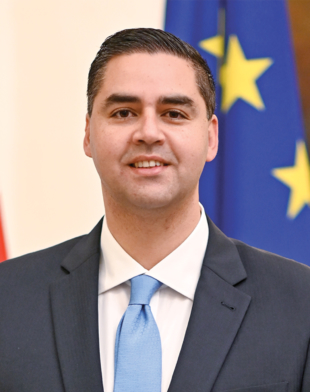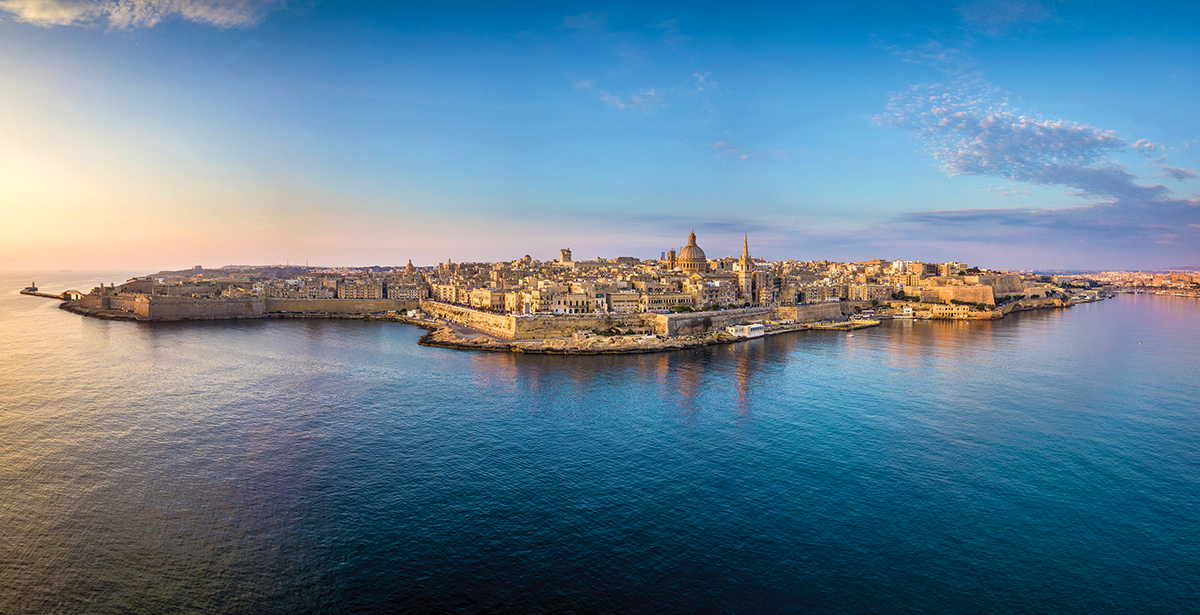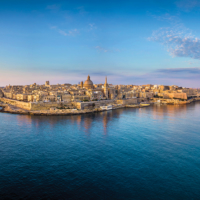Less than three years after Malta opened its inaugural diplomatic mission in Japan, bilateral relations are at an all-time high as the world’s third-largest economy and the ambitious Mediterranean country bolster trade, political and cultural bonds for many mutual benefits.
In a further boost to the pair’s positive relationship, the Japanese government is committed to opening an embassy in Malta in the not-too-distant future, a pledge that was welcomed by Malta’s Minister for Foreign and European Affairs and Trade Ian Borg during his high-profile visit to Tokyo toward the end of last year.

“It’s really gratifying that discussions are currently underway and the Japanese government is showing commitment to open a Japanese Embassy in Malta in the near future,” he said. “Malta has much more to offer namely in the service industry, pharmaceuticals, logistics, maritime and aviation, among others. We want to see that the commercial relationship between the two countries continues to grow,” he noted, adding the popularity of Maltese tuna in Japan presents many export and trade opportunities.
Collaboration and potential ways to strengthen tourism between the two countries were also on the agenda during the September tour. Before the COVID-19 pandemic, Malta hosted around 25,000 tourists and 4,000 Japanese students of English each year. Officials from both countries are eager to get those numbers back up to that level now that international borders have reopened and the destination continues to benefit from enviable political and social stability.
“Malta is a popular destination for companies from all over the world who are looking at investing in a business environment that is both welcoming and well-respected,” Borg added. “Our country offers a great number of advantages to any prospective investors. We have a strategic geographical location with strong connections with Europe, Africa and the Middle East. Furthermore, as a member state of the European Union and part of the Schengen Area, Malta provides privileged access to a market of almost half a billion people. Our country also has strong educational institutions that provide companies with a highly trained workforce that is ready to face the challenges of an ever-changing commercial landscape.”
Malta currently exports a significant amount of bluefin tuna — highly esteemed in the Japanese market — and the Maltese government is keen to see this success replicated in other industries and sectors so that trade between the duo can be diversified for their mutual benefit. Providing wholehearted support to these efforts is Malta Enterprise, the national economic development agency tasked with attracting fresh foreign direct investment as well as facilitating the growth and success of existing operations.
In addition to acting as an adviser to the government on economic policy, courtesy of its close and constant interaction with the main economic players on the island, Malta Enterprise is also the national contact point for the Enterprise Europe Network. This forward-thinking initiative allows firms based in Malta to develop links with counterparts in more than 60 countries, with the island’s excellent reputation for manufacturing quality and innovation standing it in good stead against international competitors.

“Our focus in the past couple of years has been on sectors such as life sciences and medical technology, biotechnology, and innovative technology companies,” stated Kurt Farrugia, CEO of Malta Enterprise. “That doesn’t close doors on the manufacturing sector, which is extremely important and the main pillar for the Maltese economy and has grown steadily for many years.
“We have seen growth in pharmaceutical companies, aviation, automotive and the microchip industry. Other sectors that are part of the wider Maltese economy include financial services, gaming and game development — which has become very important for us in recent years; we have attracted some of the sector’s bigger players to our country.”
‘Blue economy’ to play a prominent part
Malta’s maritime sector — often referred to as the blue economy — accounts for 14% of gross domestic product, including 22,000 jobs directly and indirectly. With the government committed to sustainable solutions and ideas, the sector is a priority area. Malta Enterprise is helping to facilitate projects based on renewable energies and low-carbon technology.
According to Farrugia, the agency is eager to explore investment and trade opportunities with major economies like Japan, especially given the popularity of seafood in the Asian economic powerhouse. “Maltese exports that the Japanese are accustomed to are related to food and they are well aware our product is top-class,” he said.
“We can increase exports in the food industry and other sectors. One of the things we’re developing is the blue economy. Malta is quite small in terms of land, but we have a huge territory in the seas. We’re also exploring potential projects outside the 12-nautical-mile limit, but that would still be part of our exclusive economic zone and feature some of the larger projects.”
Earlier this year, Malta was chosen as the main location for the manufacturing, development and worldwide distribution of hydrographic survey systems by R3Vox Ltd. The firm is set to use state-of-the-art equipment and facilities to create advanced multiaspect hydrospatial survey systems that chart and analyze bodies of water, such as oceans, seas, lakes and rivers.

During a ceremony marking the announcement, Farrugia was joined on a tour of the young firm’s facilities by Minister for the Environment, Energy and Enterprise Miriam Dalli. “This company is a prime example of innovation in the blue economy that embraces innovation and a forward-looking vision, creating quality careers,” she said. “It’s another tangible example of the research, development and innovation that is thriving on our islands.” Dalli also highlighted the government’s plans to grow the blue economy and to take advantage of sustainable opportunities, while making sure its precious seas and the natural environment on which the nation depends, continue to be adequately safeguarded for future generations. “The blue economy is an important contributor to the economy, as Malta Enterprise continues to sustain several investments that give added value to this thriving
sector, while augmenting its growth potential,” she noted.
Her companion from Malta Enterprise underlines how the start-up he was visiting was a perfect example of the type of company Malta wants to continue to attract. “This project serves as a reminder of the strong economic recovery that Malta has experienced, as well as the work that has been done to keep companies attracted to Malta even during the pandemic,” Farrugia said.
“We are looking at hydrogen projects and offshore wind farms. Technology has risen to a level where it can be very sustainable. We’re exploring other related projects that would require a large space of sea. These should be sustainable and not ruin our precious marine environment. Very high-tech robotics to inspect and maintain large vessels out at sea without having to dock them for inspections and maintenance is one example of the high-tech firms we have been attracting. That is part of the blue economy that we want to develop further.”
The senior executive notes that when it comes to inward investment, Malta can be a great gateway to Europe and Africa. “There is a lot of potential in Africa, particularly because of the rapid development in various countries and the growing standard of living,” he added. “We can serve as a good base for Africa. People should not look at Malta as a market in itself, but at the markets that are emerging in Africa and Europe where we can be a perfect base that is stable both politically and economically.
“We are connected to the world, but our geographical location makes us very attractive in the sense that we are a European country, but very close to Africa. A lot of parts for major devices, brands and cars, cosmetics, come out of Malta.
“Not many people would know this, but the microchips in our phones and cars, most of that is manufactured in Malta. That’s true for automotive and for pharmaceutical,” Farrugia said.
International investors reap rich rewards
According to Malta Enterprise, well over 200 FDI operations are present in the manufacturing sector, including in areas such as precision engineering, electronic components, automotive components, plastics and rubber. Regarded as the bedrock of the national industrial sector, world-class products have been developed and manufactured for blue-chip clients such as Apple, Airbus, Boeing, Bosch, Chanel, Daimler Chrysler, Fiat, Ford, Peugeot and many others.
In the fast-growing life sciences sector, innovative and cutting-edge products, treatments and techniques are being developed by major players in a host of medical fields. “We have a very strong pharmaceutical industry which exports globally and all the top products from oncology to injectables are here,” Farrugia said.
“We’re also branching out to biotech and biopharma. That’s something that we have been building for the past two years. We have at least three large companies that are branching out and expanding into biopharma. Also, there are two huge currency printers operating here and we are advancing a lot in technology and our factories are becoming world-class.
“We’re working on a huge project which will be under the Important Project of Common European Interest, which is a program by the EU to attract investment in particular sectors that the EU believes need to be strengthened. There is one on microchips and one on hydrogen and we’re particularly interested in batteries.”
Malta Enterprise officials are certainly very proud of the way the country of half a million people has punched well above its weight for many years in various competitive and lucrative fields on the international stage. One current priority is to ensure that the start-up ecosystem is mature enough to ensure there is a legislative body that will keep attracting startups and help some make it to the coveted status of unicorn — one that is valued at over $1 billion.
“A very important priority right now is to ensure the companies that are already operating in Malta grow,” Farrugia continued. “That is, keeping in touch with the industries and ensuring they are assisted when it comes to grabbing opportunities, so basically getting fresh FDI through start-ups. A second key area of focus is helping enterprises expand their current operations in Malta. A third priority is making sure that the investments that we bring to Malta always increase the quality of life rather than the simple economic aspect or the matrix that we are used to nowadays.
“That’s why we have been pushing the sustainability and digitization of business and why we have changed our direction slightly, in the sense that it’s not about having a company with 1,000 employees at lower wages, but firms with a smaller workforce on higher wages, as we want investments that benefit the island as well.”
Health care system in excellent shape
Despite its size, Malta consistently ranks among the best performers for outstanding health care provision, according to the regular editions of the World Health Organization’s index of global health care systems. Indeed, Malta has one of the highest healthiest life-expectancy rankings in Europe — second only to Sweden — with its comprehensive and excellent medical services free of charge at the point of service, whether for primary, secondary or tertiary care.
“The challenge is to keep our health care system at the top. Unless we keep changing, then we will lose the excellence that we have compared to other health care systems,” explained Deputy Prime Minister and Minister of Health Christopher Fearne. “That is the challenge that we have: to keep providing these services, finding the right health care professionals to be able to provide these services, and digitalizing and keeping abreast of new developments.
“Artificial intelligence is now going to be a big thing in health, machine learning, and quantum computing is going to be a big thing in the next few years in pharmacology and health, so we’re keeping ourselves abreast. The challenges that we have as a ministry are good challenges because we want to keep ourselves at the pinnacle of excellence as a health care system.”
As well as being a front-runner in the health care industry, Malta is steadily becoming a leader in the development of pioneering medical technology and innovation. The integration of technology and health care innovation is becoming increasingly prevalent and necessary, with Umana Medical Technologies known as one of the country’s leading medical device developers. The innovative firm has enjoyed exponential growth since its launch just six years ago.
The enterprise develops medical technologies aimed at the monitoring of critical vital signs. Its flagship product is Smarter Skin Technology, a nanopolymer sensor that forms an integral part of the commercially available Umana T1 system. Umana’s products help medical professionals work more closely with their many patients by providing sophisticated methods of monitoring, analyzing and sharing long-term vital signs data in the fields of cardiology, diabetes and telemedicine.
“Umana was created as a progression of what I thought would become of helping customers and patients outside of the hospital setting,” stated founder and Managing Director Adrian Attard Trevisan. “The vision of Umana has always been to help patients through service, devices and so on. That is what shaped us. Post-pandemic, Umana has continued to grow and build services around monitoring therapeutic aspects of the patient in their own home.”
https://info.japantimes.co.jp/international-reports/pdf/20230320-GI-Malta.pdf
www.global-insight.net







